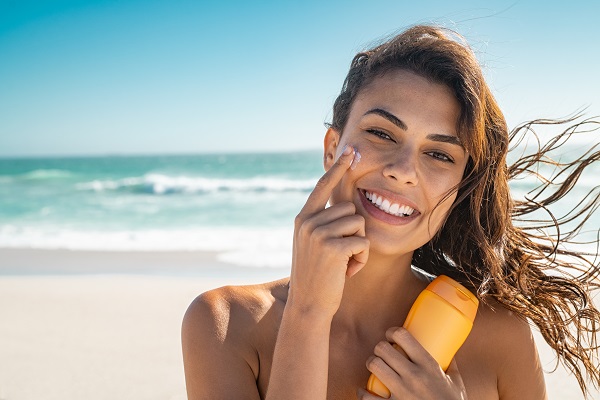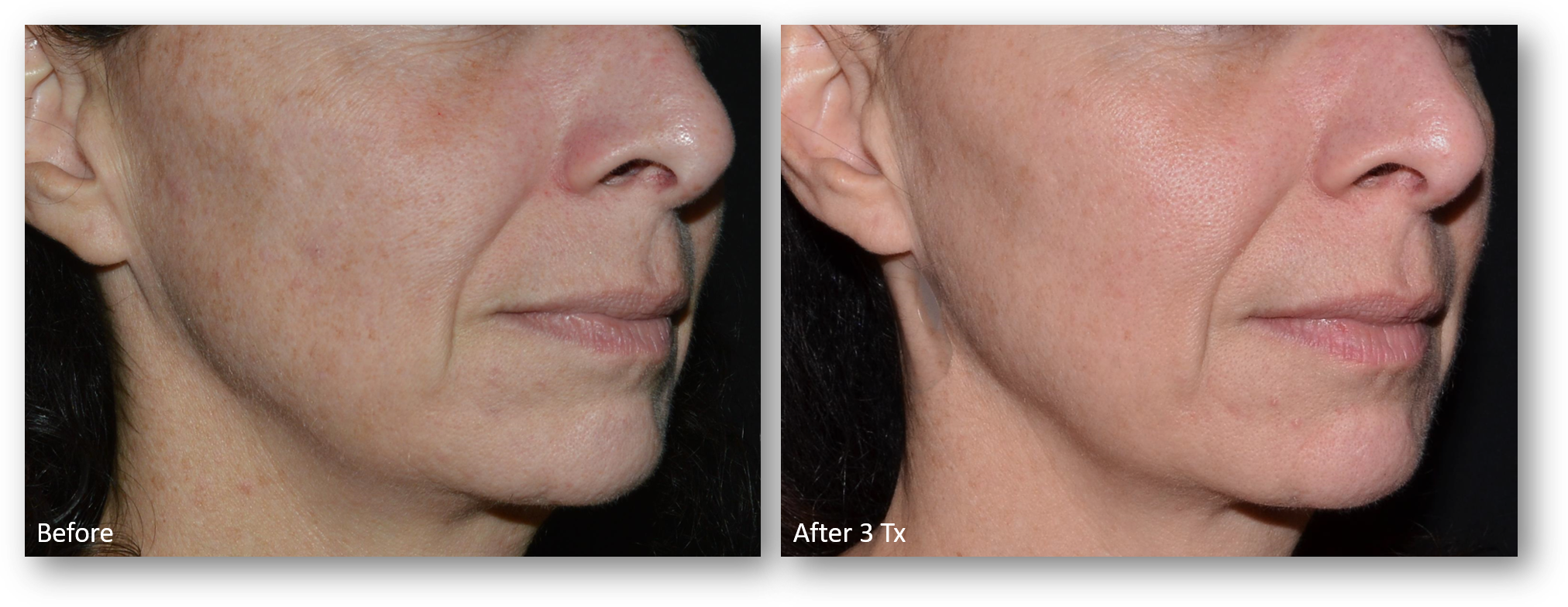
There are two types of sunscreen: mineral and chemical. Chemical sunscreens absorb UV rays and convert them into heat before releasing them from the skin. These sunscreens penetrate the skin deeply to dissipate UV rays. Mineral sunscreens do not penetrate the skin but rather sit on top where they work to reflect UV rays away from the body. Both can be effective against sun damage.
Daily use of a chemical or mineral sunscreen with an SPF of 15 or higher has been shown to reduce the risk of developing skin cancer. Daily use of sunscreen can also help to reduce the risks of sun damage such as lines and wrinkles, dark spots, textural irregularities, and more.
Damage done to the skin by UV rays is cumulative. The more frequently you are exposed to direct UV rays, the higher your chances of developing a sun-related skin imperfection. But not all sunscreens are equally safe and effective. Selecting a high-quality, full-spectrum option is essential for optimal results.
We can help you choose the best sunscreen for your skin during your next visit.
Treating Sun Damaged Skin
Cosmetic imperfections brought about by UV exposure can be treated with a variety of non-surgical options. At our office, we can treat non-cancerous sun damage with:
- Chemical Peel. Applied directly to the skin, peels work to deeply exfoliate, encouraging smoother, blemish-free skin
- IPL Photofacial. IPL penetrates deep into the dermis to eliminate damaged and discolored skin cells
- Laser Skin Resurfacing. Laser skin resurfacing removes the top layer of skin to expose healthier layers underneath. This service also stimulates collagen production, helping to address a range of age-related skin concerns
Age, environmental factors, lifestyle choices, and more can combine to impact the appearance of the skin. The treatments we offer for sun damage help to produce a smoother, more youthful, and more attractive appearance – often after just one treatment.
If you are struggling with sun-damaged skin and would like to learn more about your treatment options, please call The Advanced Dermatology and Laser Institute of Seattle at 206-402-4797 to schedule a consultation today.

